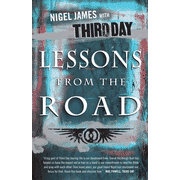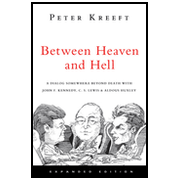The following is a repost of a blog post I wrote over a year ago (August 23rd & 24th, 2007) during the presidential primary season. It was in response to an open letter by the author Anne Rice on her personal web site. Ms. Rice is the author of the Vampire Lestat series of books, but, after returning to the Catholic church in 1998, stopped that project.
I’ve searched her web site for the letter in question and cannot find a page that has it archived, although many of her other writings, going back to 1996, are on there. It was copied and posted on other forums, including here, so you can read along at home. (Warning: This is a link to the right-wing Free Republic web site. If you fear cooties emanating from there, turn back now.)
I think the issues covered in this endorsement of Hillary Clinton for the Democratic party nominee are still relevant now, especially how it relates to Christians, how they can and should work through the political process, how Ms. Rice believes her choice of party advances that, and where I disagree with her.
It was originally posted in 2 parts due to its length, and so it shall be this time.
This is one of my longer posts, possibly the longest I’ve done on the blog. What happened was, I was reading an open letter from a Christian planning on voting a particular way, and as I read further and further into it, one objection after another kept coming to my mind, and one problem after another regarding the writer’s reasons kept getting in the way. Finally, I realized I’d have to just set aside some of my typical day-to-day blogging of the link-and-quick-comment type, and go in-depth into the problems I see with the author, and Christians in general, who vote Democratic for specifically Christian reasons, and especially regarding the social issues brought up in the letter. Pull up a cup of coffee and sit back.
Anne Rice is a Catholic author. I’ll admit to not being too well-read, but as a Protestant my knowledge of Catholic authors is even more limited. Therefore, I’m not sure how much Ms. Rice’s views are mainstream Catholic, although whether or not they are really isn’t the crux of this post. I do want to discuss the views she espouses, and espouses quite well as an author. That she is a Catholic and I am a Protestant has really no bearing on my criticism of her recent public letter dated August 10. I know Protestants who would agree with her on these issues, so this is not a denominational thing. She professes Christianity, as do I, and we have very similar goals, as far as I can tell, on the topics she discusses, and yet we’re voting differently. Ms. Rice wrote a lengthy letter to her readers on her main web site (no permalink so don’t know how long it’ll stay on the front page) about why she is endorsing Hillary Clinton for President. The reasons she lists for that endorsement, to me, run completely counter to her list of important issues and goals. If she is truly concerned about those goals, I don’t follow her endorsement, nor the endorsement of other of my friends and acquaintances of any Democrat in the current group. I want to address the inconsistencies I see in this post.
Ms. Rice starts out with her Christian and Catholic creds, which I respect and am willing to accept. She talks about how, while the separation of church and state is a good idea, the voter does not have that prohibition, and in fact must consider their vote based on their religion.
Conscience requires the Christian to vote as a Christian. Commitment to Christ is by its very nature absolute.
I agree wholeheartedly. But, she also correctly notes, we have only 2 political parties in this country. (She believes, as do I, that a vote for neither Democrat or Republican, whether it’s a non-vote or a vote for a 3rd party, is essentially a vote for one of the two major ones, no matter how you slice it.) In short:
To summarize, I believe in voting, I believe in voting for one of the two major parties, and I believe my vote must reflect my Christian beliefs.
Bearing all this in mind, I want to say quietly that as of this date, I am a Democrat, and that I support Hillary Clinton for President of the United States.
And that last clause is where the disagreement begins.
Charitable Giving
The first paragraph of explanation deals with giving.
Though I deeply respect those who disagree with me, I believe, for a variety of reasons, that the Democratic Party best reflects the values I hold based on the Gospels. Those values are most intensely expressed for me in the Gospel of Matthew, but they are expressed in all the gospels. Those values involve feeding the hungry, giving drink to the thirsty, clothing the naked, visiting those in prison, and above all, loving ones neighbors and loving ones enemies. A great deal more could be said on this subject, but I feel that this is enough.
First of all, neither the religious right nor the religious left have a lock on charitable giving. At the same time, as was noted on this post regarding a study by Arthur Brooks, conservatives outgive liberals by quite a significant amount. How does this relate to how the political parties differ in their view of the government’s role in this? Ms. Rice, I believe, falls into a trap by simplistically equating the advocacy of government charity with Jesus’ admonition to the individual to be charitable. Democrats say the government should give more, so by her reckoning thy are more in line with her Christian view. However, it has always made me wonder how when Jesus tells me, personally, to be charitable, that somehow this means that I should also use the government to force my neighbor, under penalty of jail, to be “charitable”. I put “charitable” in quotes because when there’s force involved, there’s no real act of charity. How Democrat Christians get from point A to point Z on this boggles my mind. Another statistic from Brooks’ study brings this point home; People who believe the government does not have a basic responsibility to take care of the people who can’t take care of themselves are 27 percent more likely to give to charity.
On top of this, the bureaucratic inefficiency filter that we’re all forced to funnel our “charitable” taxes through siphons money away from the needy, as does the massive fraud that goes on in a big government program that has little accountability.
Conservatives believe that forcibly taking money isn’t charity, and that it is not government’s role to rob from Peter to pay Paul, and that the way the government handles this creates dependency and causes further problems, like giving fathers a disincentive to stick around. Because of this, conservatives give more of their own money to local charities where the administrative costs are much lower. The Republican party, the current home of most conservative political ideas in this country, purports to support these goals, and while they don’t always follow those principles, they have done better at this than Democrats. An expanded role of government in the area of giving to the poor is not the best way for that to happen, and as a Christian I believe it’s not moral to force others to give when they don’t want to. Again, Jesus asks me to give; He didn’t ask me to force others to.
Ms. Rice, in ticking off a laundry list of values, seems to be falling for the framing of the issue that Democrats have put forth; welfare = caring. There are other ways to care, which can have much better results.
Part 2 tomorrow.


